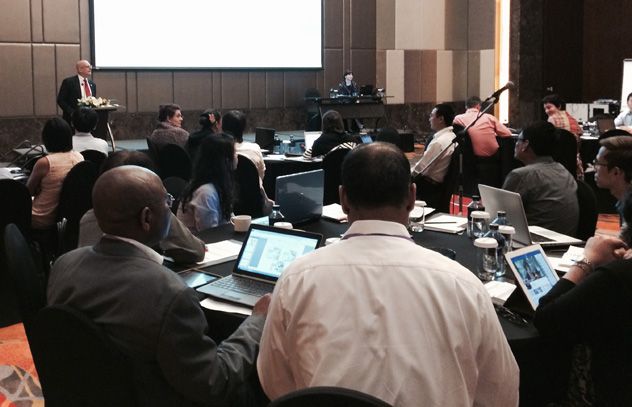

The regional consultation brought together more than 50 participants, including representatives of governments from China, Fiji, India, Indonesia, Myanmar, Thailand and Viet Nam; regional communities of people living with HIV; men who have sex with men; sex workers; transgender people; people who use drugs; UNAIDS Cosponsors, and development partners.
Update
Asia and the Pacific committed to setting ambitious HIV prevention and treatment targets
16 June 2014
16 June 2014 16 June 2014Significant progress has been made in the Asia and the Pacific region towards reaching the targets of the 2011 United Nations Political Declaration on HIV and AIDS, and the region can aspire to ending the AIDS epidemic by 2030. This was one of the main conclusions of the two-day consultation held on 12 and 13 June in Bangkok, Thailand, to discuss the challenges and opportunities for accelerating the scale-up of HIV prevention and treatment programmes in the region post-2015.
With less than 500 days to go to reach the targets of the 2011 Political Declaration, the meeting reinforced the need for concerted action to reach the 2015 targets as well to set ambitious new targets for 2020 and 2030. In a bid to leave no one behind and realize zero new HIV infections, zero discrimination and zero AIDS-related deaths, it was agreed by participants that scaling up HIV testing, focusing on key populations at higher risk, innovation in service delivery and increased funding are key to ending the AIDS epidemic by 2030.
The regional consultation brought together more than 50 participants, including representatives of the Governments of China, Fiji, India, Indonesia, Myanmar, Thailand and Viet Nam, regional communities of people living with HIV, men who have sex with men, sex workers, transgender people and people who use drugs, UNAIDS Cosponsors and development partners.
Following the regional consultation, country dialogs will be organized with key stakeholders to agree on a set of national HIV prevention and treatment targets.
Quotes
"In Asia and the Pacific, remarkable progress has been made over the past 10 years in the HIV response, but we need to keep the momentum going so we can build on gains and finish the job."
"The prevention and treatment targets for 2020 and 2030 are ambitious, but it’s good to set the bar high as it encourages health professionals, governments and civil society to refocus, innovate and collaborate."
"This is not just about being ambitious, rather working out a way to deliver prevention and treatment, in partnership with communities, to maximize impact and save lives. This is in line with how Indonesia is working, and having an aspirational set of targets will give focus to those efforts."
"We are not merely numbers. The new targets for post-2015 have to ensure universal access to quality prevention and treatment services, including hepatitis C diagnosis and treatment for people who use drugs. And we should also develop indicators for community-led HIV testing and services."



